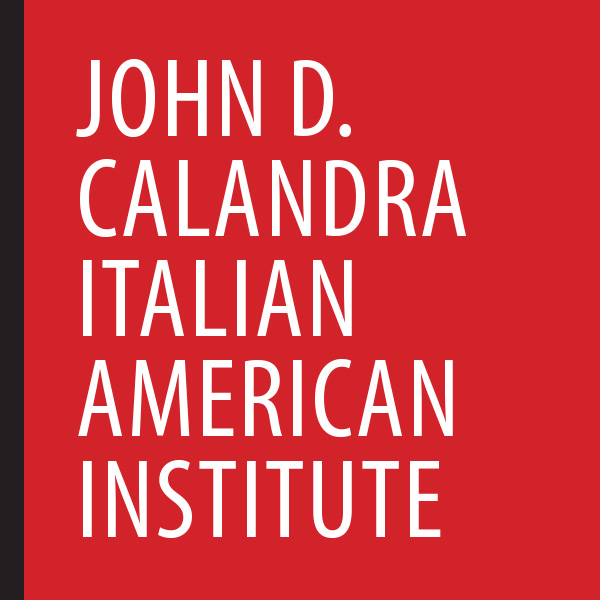Category: News
Announcing the 2026 Italian Diaspora Studies Summer Seminar
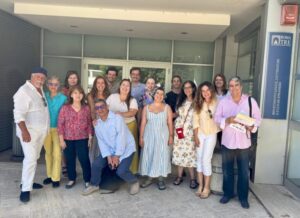 Study Italian Diaspora Culture in Rome through a Unique Summer Program in June 2026
Study Italian Diaspora Culture in Rome through a Unique Summer Program in June 2026CALL FOR APPLICANTS: Editor of Italian American Review
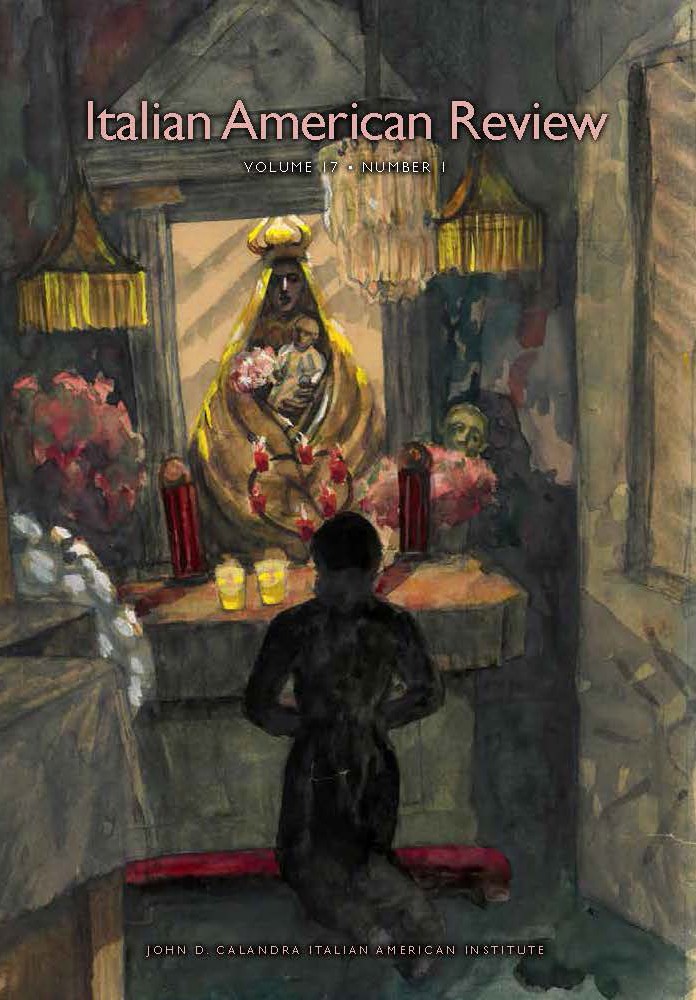 The Italian American Review, a peer-reviewed, bi-annual journal devoted to the study of the histories and cultures of Italian Americans and the Italian diaspora, welcomes applications from qualified scholars for the position of editor of the journal for a three-year term commencing January 2027.
The Italian American Review, a peer-reviewed, bi-annual journal devoted to the study of the histories and cultures of Italian Americans and the Italian diaspora, welcomes applications from qualified scholars for the position of editor of the journal for a three-year term commencing January 2027.ANNOUNCING: Pietro “Pete” Panto Italian Diaspora Labor Dissertation Fellowship
 This year marks the second of six funded years of the Panto Fellowship prize. The $1,000 fellowship is for graduate students who are writing their dissertation on any topic involving Italian emigrant and/or Italian ethnic labor and/or working-class life either in the United States or in the wider Italian diaspora.
This year marks the second of six funded years of the Panto Fellowship prize. The $1,000 fellowship is for graduate students who are writing their dissertation on any topic involving Italian emigrant and/or Italian ethnic labor and/or working-class life either in the United States or in the wider Italian diaspora.Book Release: Expanding Diasporic Identity by Anthony Julian Tamburri
New book by the Dean of the Institute!
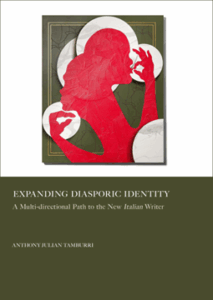 This study examines the changing dynamics of the “Italian” writer and how we, as cultural critics, need to re-think our definitions of the new Italian writer. In so doing, we must also re-consider the notion of the geo-cultural zones that we characterize as “Italian.” Namely, how do we categorize that writer who, having left Italy and now living beyond its geo-cartographic boundaries, writes in Italian? Similarly, who is that other writer who, originating from another country that is both culturally and linguistically different from Italy, writes in Italian? Finally, where within these two groups do we position the writer of Italian origin who also lives in another country and, different from the previous two types of writers, composes his/her work in the language of his/her host country?
This study examines the changing dynamics of the “Italian” writer and how we, as cultural critics, need to re-think our definitions of the new Italian writer. In so doing, we must also re-consider the notion of the geo-cultural zones that we characterize as “Italian.” Namely, how do we categorize that writer who, having left Italy and now living beyond its geo-cartographic boundaries, writes in Italian? Similarly, who is that other writer who, originating from another country that is both culturally and linguistically different from Italy, writes in Italian? Finally, where within these two groups do we position the writer of Italian origin who also lives in another country and, different from the previous two types of writers, composes his/her work in the language of his/her host country?
Book Release: Gli americani italiani: cultura e società by Anthony Julian Tamburri
New book release in Italian by the Dean of the Institute!
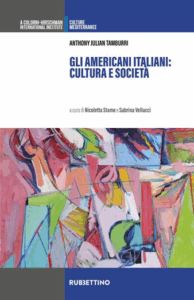 Anthony Julian Tamburri is a leading figure in the field of Italian/American studies. Examining literary and cinematographic works from the perspective of cultural issues related to the concepts of memory, ethnicity, migration, and diaspora, Tamburri has argued for the need to broaden the concept of “Italian identity,” which in recent decades has extended far beyond traditional boundaries. Tamburri has thus initiated a dialogue that aims to launch an interactive process of shared practices and knowledge, which can benefit both “Italian” communities, including in their relations with other American ethnic communities, and the wider contexts in which we operate, including the Mediterranean and countries where the Italian diaspora is present: a textual and cultural journey that ‘will certainly not be easy, as it will confront us with a series of linguistic, cultural and […] ideological deviations’ and will force us to take a close look at stories that have long been removed from our collective imagination.
Anthony Julian Tamburri is a leading figure in the field of Italian/American studies. Examining literary and cinematographic works from the perspective of cultural issues related to the concepts of memory, ethnicity, migration, and diaspora, Tamburri has argued for the need to broaden the concept of “Italian identity,” which in recent decades has extended far beyond traditional boundaries. Tamburri has thus initiated a dialogue that aims to launch an interactive process of shared practices and knowledge, which can benefit both “Italian” communities, including in their relations with other American ethnic communities, and the wider contexts in which we operate, including the Mediterranean and countries where the Italian diaspora is present: a textual and cultural journey that ‘will certainly not be easy, as it will confront us with a series of linguistic, cultural and […] ideological deviations’ and will force us to take a close look at stories that have long been removed from our collective imagination.
Explore a 3D Model of the Exhibition: Creativity and World War II Italian POWs in the United States
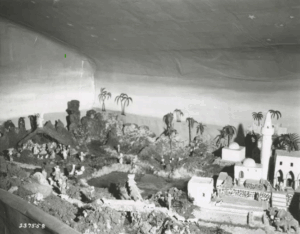
The Calandra Institute’s current exhibition Creativity and World War II Italian POWs in the United States, curated by Laura E. Ruberto and Joseph Sciorra, can now be explored via a digital 3D model. View it here. To learn more about the exhibition click here, view the catalog, or read a brief description:
The exhibition presents creative work made by Italian soldiers who were imprisoned by the Allied forces during World War II, focusing on those held in the United States. These objects, often made from salvaged materials, ranged in size from a small inlaid ring to a large Catholic chapel with a 65-foot bell tower. There is no archive or collective depository about World War II Italian prisoners of war in Allied hands. To document this creative work, the exhibit pulls from research completed by co-curator Laura E. Ruberto (Berkeley City College), including historical photographs, rare remaining artifacts, oral testimonies, written accounts, family memories, and private collections. The exhibition, designed by Polly Franchini, brings together a selection of these objects, images, and stories to present this little-known history. Highlighting the artistry of incarcerated Italian servicemen (some of whom maintained allegiance to Fascism) is not meant to trivialize the atrocities of war or to minimize the resistance of those who fought at great sacrifice. Rather, it offers an opportunity to reflect on the myriad ways that identity and imagination are shaped materially during the adverse conditions of war.
The public can also view the gallery in person at the Calandra Institute’s Midtown Manhattan location. It will be on view from 9am to 5pm, Monday to Friday, until November 26.
Italian Diaspora Studies Summer Seminar in the News
The IDSSS got some favorable press in L’idea magazine. This year’s edition of the seminar ran through June 28 at Roma Tre University.
Italian Heritage and Culture Month 2024: Giovanni da Verrazzano 1524-2024
This year’s theme for Italian Heritage and Culture Month is Giovanni da Verrazzano 1524-2024: 500 Years. We present here the Italian Heritage & Culture Committee, New York, Inc.’s documents anticipating the October celebrations: click here for Cav. Joseph Sciame’s Events Letter; here for the Events Form; here for a Press Release about this year’s celebration; and here for the Donations Request Form.
Call for Papers for Calandra’s 2025 Conference: The Bitter Bread of War: Multidisciplinary Perspectives from Italy and the Diaspora
April 25–26, 2025
War has been foundational to the shaping of modern Italian history, memory, and culture—from the wars of the Risorgimento to colonial and Fascist wars of expansion up to and including the two world wars. Furthermore, in all these Italian war efforts, emigrant and diasporic communities have played significant roles whether through moral and material support, serving in the Italian military, or through their opposition to Italian wars. As such, scholars are increasingly turning their attention to the theme of war and its importance to our understanding of the history of Italy, the Italian diaspora, and former colonial subjects. This interdisciplinary conference is open to a wide range of topics concerning war from an Italian—broadly understood—perspective. As in the past, the Institute’s conference proposes an inclusive approach to Italy and Italian mobilities, including inhabitants of the nation-state, members of the diaspora, current immigrants in Italy and their descendants, and former colonial subjects.
Suggested paper topics include but are not limited to:
- Italian military history
- Italy’s reaction to other nations’ wars (e.g., Vietnam War, Russian-Ukraine War)
- Anti-war movements and statements (e.g., Scorsese’s 1967 The Big Shave)
- Colonial wars and anti-colonial responses
- Domestic warfare, e.g., brigands, partisans, Years of Lead
- Diasporic involvement with Italy’s military and wars
- Italian immigrant and descendants’ participation in host country’s military
- Displaced persons and refugees
- Internment, e.g., POWs, US government’s enemy alien designation, Fascist concentration camps in Libya
- Gendered approaches to war
- Creative accounts and depictions, e.g., memoir, fiction, film, visual arts (e.g., Mengiste’s 2019 The Shadow King)
- War as metaphor, e.g., class wars, war on organized crime, war on migrants
- Memory, oral history, and historical revisioning, e.g., the foibe, Fosse Ardeatine, the Shoah
This is an in-person event without virtual presentations.
The official language of the conference is English. All presentations are limited to twenty minutes, including audio and visual illustrations. Thursday evening is dedicated to welcoming comments and reception; sessions and panels will take place all day Friday and Saturday.
NOTA BENE: There are no available funds for travel, accommodations, or meals. There is no conference registration fee. The conference does not make arrangements with local hotels, so participants are responsible for booking their own accommodations.
DEADLINE FOR SUBMISSIONS: SEPTEMBER 15, 2024. Abstracts for scholarly papers (up to 500 words, plus a note on technical requirements) and a brief, narrative biography should be emailed as attached documents by September 15, 2024, to [email protected], where other inquiries may also be addressed. We encourage the submission of organized panels (of no more than three presenters). Submission for a panel must be made by a single individual on behalf of the group and must include all the paper titles, abstract narratives, and individual biographies and emails.
Notice of acceptance or rejection will occur in early November 2024.
This year’s conference title comes from Arturo Giovannitti’s poem “Anniversary II.”
